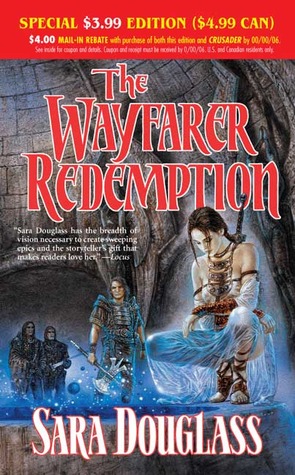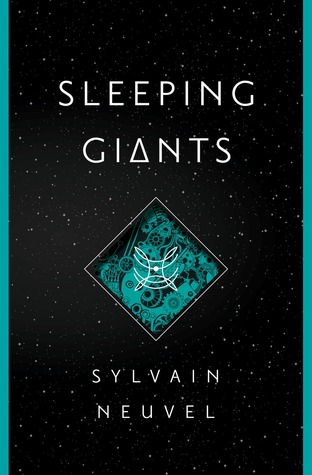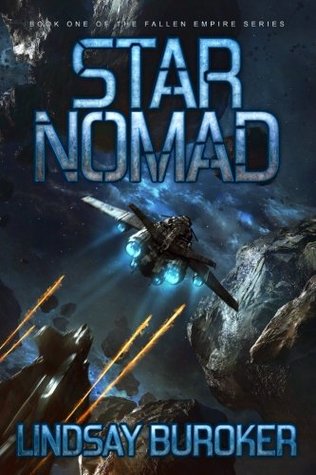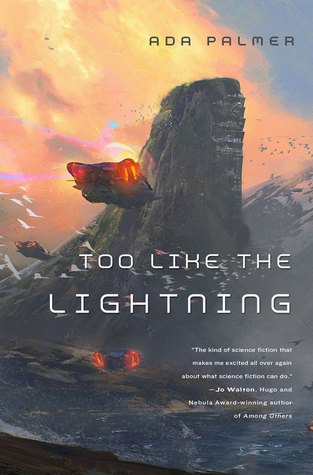It is really hard to say what you are willing to watch with your children. But for me, growing up sci-fi was what made me happy. There are a lot of works out there that are kid friendly, and there are a lot of them that are not.

For example, nobody is going to get, too, upset when they watch:
While it was supposed to be in the same vein as the previously mentioned films, "The Last Starfighter" was lame, no matter when I watched it. And yet, it was beloved at the time.
Here are a couple more, supposedly kid friendly movies, that have a chance to frighten some children:
- "Nausicaä of the Valley of the Wind"
- "The Iron Giant"
- "The Secret of Nimh"
In the same vein "Titan A.E." can be a great entertaining sci-fi cartoon for both parents and children, but it has elements that do not make it suitable for small children.
"Flight of the Navigator" has the potential to be little bit scary, but the creativeness of the ship and the concept of the film has the potential to lessen those aspect. At leat they did for me. I think the power and the awe of it was one of those things that really set in me a love of sci-fi.
If you have just discovered your passion for sci-fi, or you are exploring it with your children. Welcome to Coolsville. Population: Us!
There are more than enough sci-fi books out there that deal with reincarnation. Some do it well, others don't.
Richard Morgan, "Altered Carbon", with a very "hard" take on coming back in new flesh. But also happens to be fantastic hard-boiled noir sci-fi, so much so that it would be in black and white if it wasn't a book.
The reincarnation part is to do with their solution to interplanetary travel. It is more economical to simply transmit one's consciousness and have it take over a new host body. This has many side effects, emotionally as well as biologically.
"Lord of Light" by Roger Zelazny
"Isle of the Dead" by Roger Zelazny
"The Karma Affair" by Arson Darnay
"The Radix Tetrad"
by A. A. Attanasio

"The Last Legends of Earth" is the final book in the tetrad, and possibly, just the most wonderfully entertaining sci-fi book I read when I was young. "The Last Legends of Earth", takes place billions of years in the future. It sort of about an alien who reincarnates humans to bait a cosmic mousetrap. The book has such a huge milieu to play in that it never gets boring.
On top of that the aliens are completely horrifying and AAA doesn't hold back.
While the other authors get a sound placement on the list, the Radix Tetrad is one of the best, if simply for the sheer entertainment.
Another thing is that there are lots of references in LoL that can be difficult to understand on the first read. One of them that I didn't get at first was the reference made to; "tall man made out of smoke with the big hat" which is a reference to atomic weapons.
Regardless of all of that, "Lord of Light" is an amazing novel.
All three authors, Zelazny, Darnay, and Attanasio have a different reincarnation mechanism.
Rolling Stone knows Science Fiction almost as well as they know music and their list proves it.
This list is embarrassing.
I have seen this list from time to time and I am sort of dumbfounded every time. You will see "Buffy the Vampire Slayer" being placed ahead of TNG.
If you see where I am going with this, you will know that the list is shit.
It also includes "Thunderbirds" which no critic has ever called a "best" sci-fi show. Worse, it does so at the expense of a show like "Farscape".
On top of that, I can't take any list seriously that touts the "X-Files" as good sci-fi.
It is a show that is the epitome of network, episodic TV. While I have watched it (most of it) and there a few good episodes sprinkled over a season, the rest is a mess of mediocrity that in the end added up to a big mess of nothing. Yes, Scully & Mulder were great characters, but that doesn't change the fact the show blew it's entire myth arc in the end. The reveal of what happened to Mulder's sister was the Capone's Vault of sci-fi shows.
It's more like the top 40 science fiction shows I could remember, because too many of these are recent are not really sci-fi.
You can tell because they forgot "Deep Space 9" and "Farscape" and a few other important ones, while the current Marvel superhero shows do are all promotent. And if they are going to include new shows, and they do, then "Dark Matter" should be included, its first season was one of the most promising starts to show in quite awhile.
Rolling Stone, having no idea what they're talking.

Today I wanted to explore something different for a change. While I will stick with my favorite genre/s I will take a look at them in a little bit different perspective.
That of a young adult.
So today I will do just that.
Akata Witch
By Nnedi Okorafor

This is a very good book and the setting, Nigeria, brought so much life to the story that it was great fun to read.
Horatio Lyle Series
By Catherine Webb

While they are science/fantasy/action books at their heart they are still light fun. To summarize I will just say they are physicist/scientist against monsters.
Discworld Series
By Terry Pratchett
.jpg)
If you haven't been exposed to Terry Pratchett before there is no time like the present.
I cannot suggest his books strongly enough. And while they are all excellent I very strongly recommend starting from "Guards! Guards." Though you can also jump in with: "Men at Arms", "Hogfather", or even "Mort" to name a few. They parody fantasy, but also taught me a lot about how to be a Decent Human Being.
Neverwhere by Neil Gaiman
Good Omens by Neil Gaiman and Terry Pratchett

In all fairness they should both be fantasy classics.
The first one is about alternate-universe London while "Good Omens" is about the end of the world.
Shades of Grey
By Jasper Fforde

No not that "Shades of Grey," the "Shades of Grey" which is a dystopia novel with a very unique premise.
The book may come across as, well, strange if you haven't read anything by him before. But I can guarantee that Jasper Fforde is definitely a writer worth exploring (though an acquired taste). "The Fourth Bear" is also fun. It is a playful take on nursery rhymes, yet draws inspiration heavily from the noir crime tradition.
And of course anything by Douglas Adams is recommended, unless you have read them, and in that case I would suggest a re-read.
And then there is "1984" which is in every way deserving of its classic status. I first read the book when I was 13, it was life changing in so many ways. And it helped shape my tastes in literature.
A note of warning, this list does change from time to time, some shows get added, others get a hard second look and get removed. But that doesn't mean that the list itself is less valuable that it was when you last saw it.
The rules are simple.
The show has to be fun on some level. That doesn't mean that it has to be funny. Though I did add a couple of campy shows on the list because, some guilty pleasures are allowed.
They are roughly grouped together by theme. But since a lot of them are over lapping you will see some broader genres being listed in "best fit" categories. This isn't an attempt to stick them in a different genre.
Sci-fi / Supernatural
- Continuum
- Orphan Black
- The 4400
- Alphas
- Ghost in the Shell
- Dollhouse
- The Twilight Zone
- Ascension
- Black Mirror
- The Outer Limits
- Alcatraz
- Sapphire & Steel
- Torchwood
- Flash Forward
- Threshold
- The Event
- Journeyman
- Warehouse 13
- Eureka
- Stargate Universe
- The Pretender
- Person of Interest
- Agents of SHEILD
Fantasy / Supernatural / Drama / Crime
This is a really wide range, a lot of things just don't fit in the above and I needed a catch-all for those hard to place stories.
- Eerie, Indiana
- Buffy the Vampire
- Twin Peaks
- Millennium
- Penny Dreadful
- Haven
- Lost Girl
- Sleepy Hollow
- Hannibal
- Supernatural
- Kolchak: The Night Stalker
If you love "sci-fi" alla Star Wars and the likes of Guardians then you really don't have a lot of options. While it may seem strange a lot of sci-fi in book format does not follow the same cinematic character as those movies. But there are still some great option out there that will give you something to enjoy. Outside of actually reading the Star Wars novels, and there are some goods ones. Zahn comes to mind.
For for a new series there is the obvious answer, that many consider the final answer.
Wayfarers series by Becca Chambers

"The Long Way to a Small Angry Planet", which is the first book in the series really setup the story for me. It felt like I was reading Firefly in so many ways.
While I understand that they're different - they also have what could be called the same essence in many ways.
Wayfarers does a lot to build these similarities, for one thing, the book is episodic in the sense that the story being told can be read out of context and you will not be missing much.
While there is an overarching plot it does not play a big role in how you can enjoy the series. That is because the focus is on the characters, the situations they get into, and their long interstellar journey.
I am not the only one who thinks of it as the spiritual successor to Firefly.
The second book, "A Closed and Common Orbit", is actually not what I would call a sequel. I would, for lack of a better term, described the book as a spin-off in the universe rather than a sequel. One reason is because "A Closed and Common Orbit" follows characters who were partially introduced in the first book but did not receive the attention that a main or even secondary character would.
If I had a complaint about it, I would say that it lacks in scope, the second book feels in most ways smaller, though that does not stop it from telling good stories.

While a lot of the sci-fi that I review or share on here is rather deep. There are a lot of things that you can do with the genre. And humor is definitely one of them.
"John Dies at the End" by David Wong

I would be more tempted to say that "John Dies at the End" is actually more horror comedy than sci-fi than anything actualy seen as true sci-fi. The novel stars John and Dave, who ended up being drawn into the strange and horrifying paranormal craziness of their unnamed Midwestern town.
When you are done with this book you’ll never look at soy sauce the same way again.
"Redshirts: A Novel With Three Codas" by John Scalzi

This one is most definately sci-fi book. And a wonderful one at that. If you have any exposure to Star Trek you will be pleased with the tounge-in-cheek adventures Ensign Andrew Dahl as he tries to stay alive while accompanying the starship Intrepid's bridge crew on increasingly more dangerous away missions to alien worlds.
trope of the original Star Trek series, Redshirts follows
"Hitchhiker’s Guide to the Galaxy" by Douglas Adams

Seriously, if you haven't read Hitchhiker's Guide to the Galaxy, stop what you're doing right now and go pick it up. A fantastic, comedic read about a poor hapless human named Arthur Dent as he traverses the odd corners of the universe with alien explorer Ford Prefect, this novel is just a flat-out entertaining read and a must-have for any sci-fi fan.
I think that one thing that speculative fiction, hard sci-fi, and even fiction as a whole does for us is that it gives us a platform to text new ideas. New technology, and more importantly to encourage and inspire those in the position to actually make it become reality. One thing that has always intregged me is the notion of effortless travel.
Something that may to some seem outlandish is actually feasible. It also has the potential to completely change humanity. While it may not be propelling you next SUV, it is something that, given enough time human kind has the ability to achieve.
Another technology that is often reviewed in speculative works is full immersion virtual reality. The idea is attractive to authors because they have the opportunity to remake physics, creating a place where technology as well as magic is achievable.
There is simply no reason to question our ability to become an interstellar species ready and capable to take to the stars. The advent of antimatter propulsion, which should become attainable in the next two hundred years or less will enable us to reach .1 to.3 c. Something like that has the potential to send viable generation ships to nearby systems, which would in turn be able to gone one step further. At this point, an interstellar federation is not only possible, but it has already begun.
The idea that after a couple of generations of colonization, those first colonist can send a new generation ship isn't new in sci-fi. Colonizing nearby stars is a common theme among sci-fi authors and it is one that even just a hundred years ago seemed like the wildest form of speculation, yet today, many different organizations around the world are actively working to bring us there. It is such common knowledge/understanding that we don't even think twice about it.
Another theme that is common among authors is the possible option of trans-humanism. What it deals with is the ability to multiply human life expectancy by factors of 100s or 1000s. Life expectancy is only going to keep increasing, and when once, forty was considered old, today it is simply the start of middle age.
Is any of this feasible?
Sure.
Just look at the technology that sounded so alien from the last decades.
The military is one area that is always pushing the boundaries when it comes to applying the hypothetical to current technology.
Take for example the old Tomahawk cruise missiles, once it topped all of the list for high-tech weaponry. Yet, to today's standards it was rather primitive. Coming pre-loaded with maps of the terrain, they rockets were supposed to follow and using sensors to scan and match the terrain.
Many of the "improvements" are simply a bit of the old with a bit of the new. Take for instances GPS guided bombs. They are nothing more than the old dumb bombs with basic GPS guidance system and fins connected to them.
The laser guided bombs/missiles required laser spotters to be located on the ground or built into the aircraft to function. While the missiles were constructed to utilize a more advanced laser targeting system, the "smart" bombs were just dumb bombs with the laser hardware attached to them and functioned on the same principle as the GPS guidance systems.
Yet no matter how basic they are, modern threats have been addressed with an additional layer of technology that was not required when they were conceived.
EMP weapons are products of early 80's fiction, yet whatever threat they posed them, it has largely been mitigated by redundancy and mass production.
And even when you take that into consideration, today's smart weapons incorporate shielding into their design, with hardware that acts in a manner similar to Faraday cages. This prevents any strong pulse from charging the circuit boards. Yet it is also simply, and rather low tech. They use simple copper alloy that prevent any similar boards from being shorted.
In short, while once considered the weapon of the future, EMPs would have no effect on today's smart weapons, or any produced in the last twenty years. What at one time was speculation was rendered useless by an even more advanced technology.
Speculation leads to reality, which leads to history.





.jpg)





 Paper Girls, Vol. 1by Brian K. Vaughan
Paper Girls, Vol. 1by Brian K. Vaughan The Long Cosmosby Terry Pratchett, Stephen Baxter
The Long Cosmosby Terry Pratchett, Stephen Baxter Sleeping Giantsby Sylvain Neuvel
Sleeping Giantsby Sylvain Neuvel The Buntline Specialby Mike Resnick
The Buntline Specialby Mike Resnick Star Nomadby Lindsay Buroker
Star Nomadby Lindsay Buroker Too Like the Lightningby Ada Palmer
Too Like the Lightningby Ada Palmer